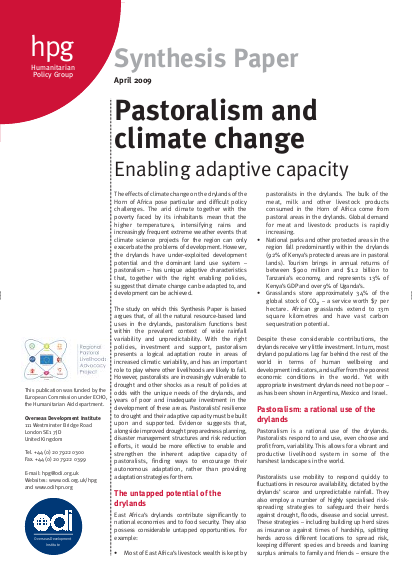
The study on which this Synthesis Paper is based
argues that, of all the natural resource-based land
uses in the drylands, pastoralism functions best
within the prevalent context of wide rainfall
variability and unpredictability. With the right
policies, investment and support, pastoralism
presents a logical adaptation route in areas of
increased climatic variability, and has an important
role to play where other livelihoods are likely to fail.
However, pastoralists are increasingly vulnerable to
drought and other shocks as a result of policies at
odds with the unique needs of the drylands, and
years of poor and inadequate investment in the
development of these areas. Pastoralists’ resilience
to drought and their adaptive capacity must be built
upon and supported. Evidence suggests that,
alongside improved drought preparedness planning,
disaster management structures and risk reduction
efforts, it would be more effective to enable and
strengthen the inherent adaptive capacity of
pastoralists, finding ways to encourage their
autonomous adaptation, rather than providing
adaptation strategies for them.